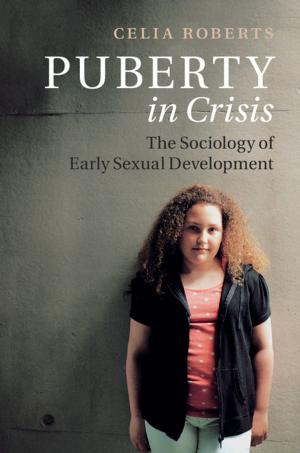Emotion
A Biosocial Synthesis
Nonfiction, Health & Well Being, Psychology, Physiological Psychology, Cognitive Psychology| Author: | Ross Buck | ISBN: | 9781316053379 |
| Publisher: | Cambridge University Press | Publication: | October 9, 2014 |
| Imprint: | Cambridge University Press | Language: | English |
| Author: | Ross Buck |
| ISBN: | 9781316053379 |
| Publisher: | Cambridge University Press |
| Publication: | October 9, 2014 |
| Imprint: | Cambridge University Press |
| Language: | English |
Emotions suffuse our lives: a symphony of feeling - usually whispering and murmuring in pianissimo but occasionally screaming and shouting in fortissimo crescendo - filling every waking moment and even invading our dreams. We can always be conscious of how happy, sad, annoyed, or anxious we feel, and also of the feelings we have relative to other persons: pride, envy, guilt, jealousy, trust, respect, or resentment. Developments in brain imaging and in capturing nuances of nonverbal display now enable the objective study of emotion and how biologically-based primary emotions relate to higher-level social, cognitive, and moral emotions. This book presents an integrated developmental-interactionist theory of emotion, viewing subjective feelings as voices of the genes: an affective symphony composed of dissociable albeit interactive neurochemical modules. These primordial voices do not control, but rather cajole our behavior with built-in flexibility, enabling the mindful application of learning, reason, and language.
Emotions suffuse our lives: a symphony of feeling - usually whispering and murmuring in pianissimo but occasionally screaming and shouting in fortissimo crescendo - filling every waking moment and even invading our dreams. We can always be conscious of how happy, sad, annoyed, or anxious we feel, and also of the feelings we have relative to other persons: pride, envy, guilt, jealousy, trust, respect, or resentment. Developments in brain imaging and in capturing nuances of nonverbal display now enable the objective study of emotion and how biologically-based primary emotions relate to higher-level social, cognitive, and moral emotions. This book presents an integrated developmental-interactionist theory of emotion, viewing subjective feelings as voices of the genes: an affective symphony composed of dissociable albeit interactive neurochemical modules. These primordial voices do not control, but rather cajole our behavior with built-in flexibility, enabling the mindful application of learning, reason, and language.















